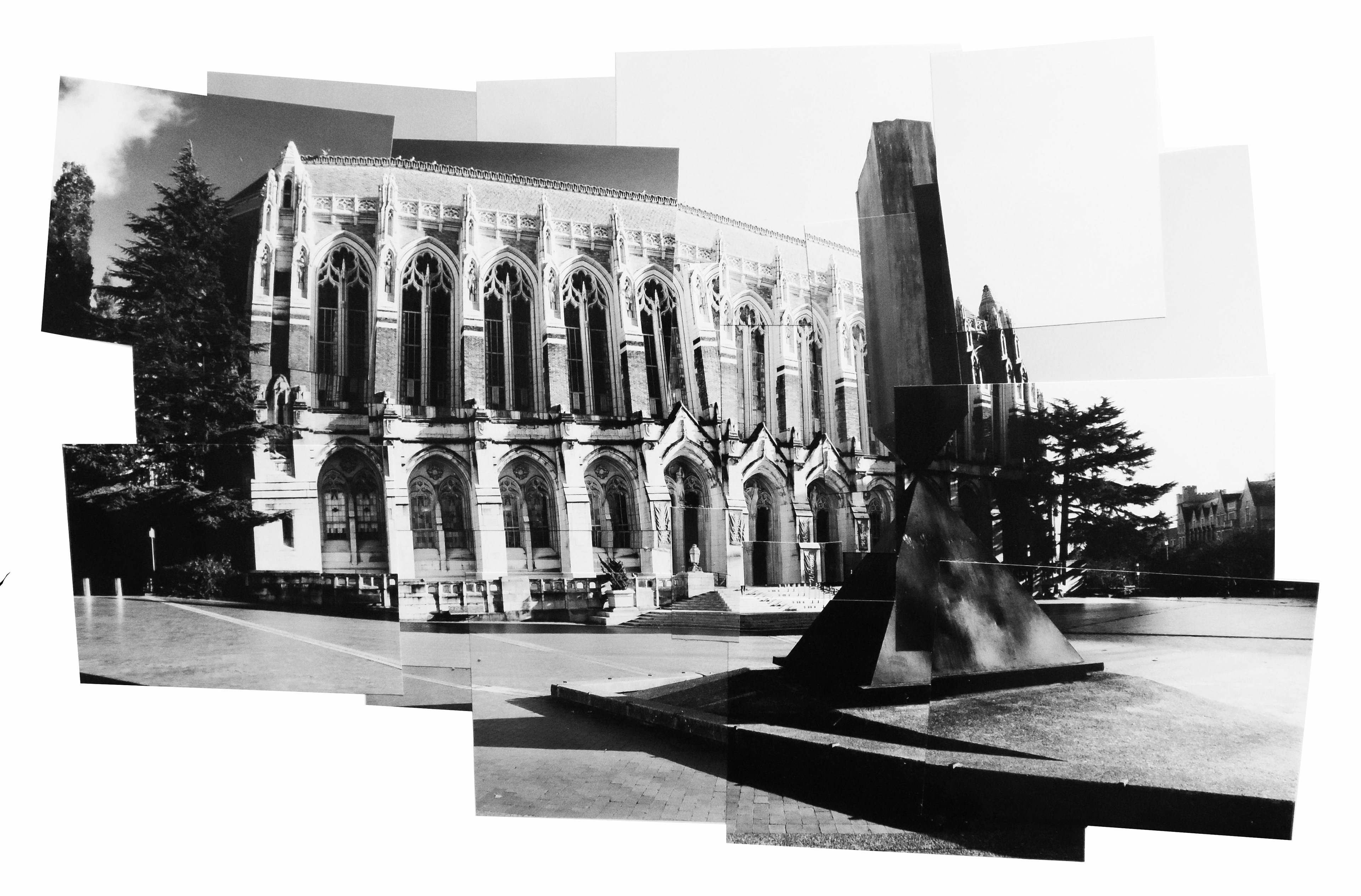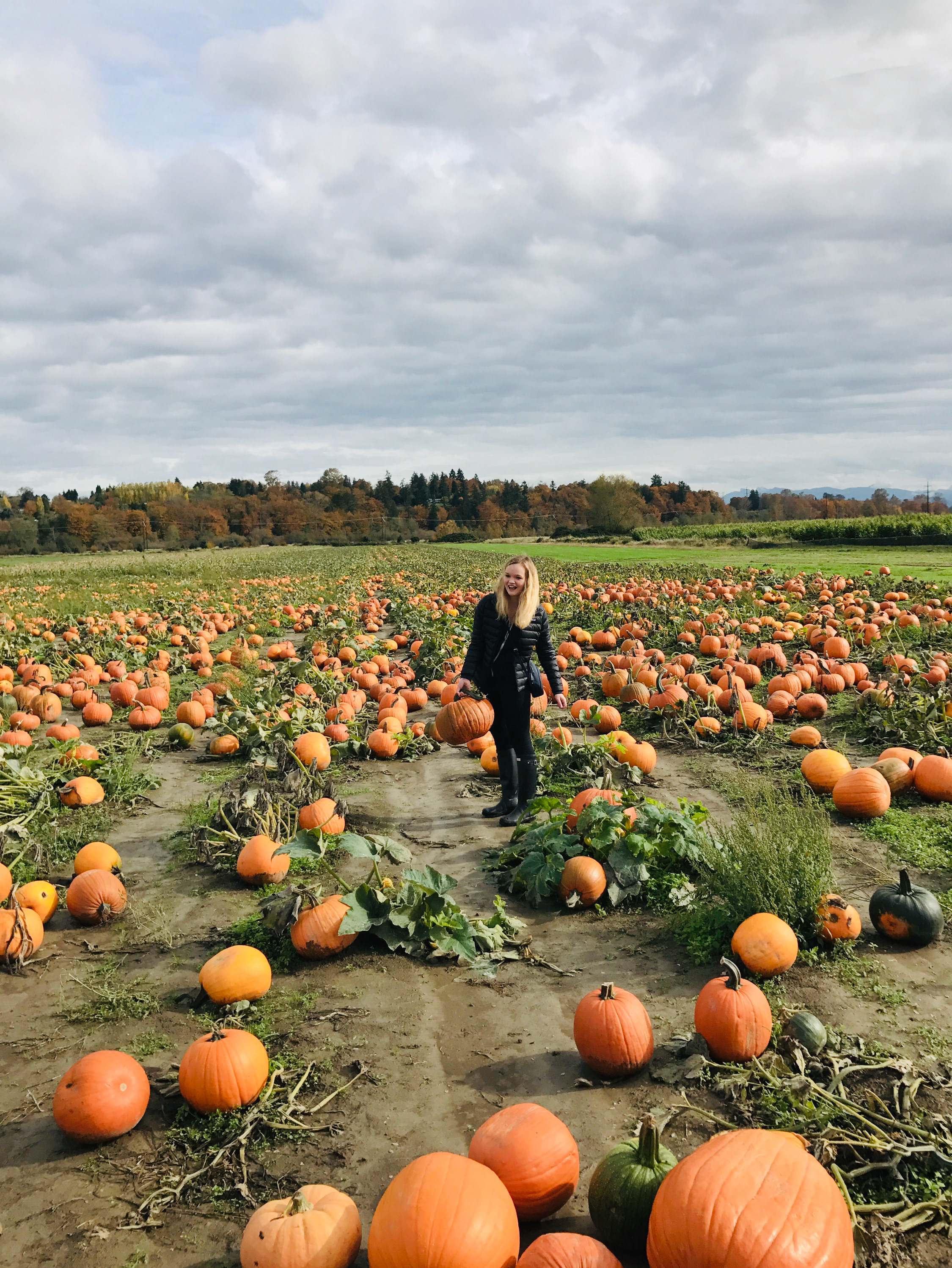
What We Know And How We Know It
The very first college classroom I ever stepped into was a 30 person class. While at first the class appeared similar to the high school courses I had spent the last four years in, it was quickly proven to be far more valuable. In the approximately 20 times I attended this course, I underwent a large development in how I saw knowledge, thought, and the world as a whole. I was taught the importance of reflection, how to write three key types of papers, and how to think outside the box. By the end of the class I had learned how to surpass my comfort zone and write something that is more provocative and demonstrates a perspective that is more unique to myself. The image above, and paper below, are a piece of my final project for this course. The writing piece and the photo collage are in response to an article entitled "The End of Identity Liberalism."
I feel as though this class, along with the rest of my first quarter at the UW, has shown me a vast amount of possibilities for my future. More than ever I feel like I have permission to explore these opportunities as well. While I still consider myself to be largely reliant on scientific rational thinking, I now feel more comfortable sometimes embracing a neo-romantic worldview. I have become more excited about self-reflection and the arts, and I am curious how in the coming years those elements will begin to shape my life post-college. I learned this quarter that I come to know largely through reflection. Much of my time during the last couple of months was spent reflecting on readings, what I had been taught, my writing, and my life in its entirety. While at the beginning of the quarter the large presence reflection had in all my classes seemed tedious and unnecessary, I have grown to appreciate how much it has taught me.
...
"The End of Identity Liberalism"
In the New York Times opinion piece “The End of Identity Liberalism” Mark Lilla presents his controversial response to the election and what he thinks is the necessary next step in advancing liberal political agenda. Lilla’s opinion was one that I had not yet been exposed to and at first read, made a lot of sense. Identity liberalism is dividing the primary interests of liberal Americans into a variety of separate areas, making it harder for liberals to advance policy that does not have to do with social identity. Because people are so focused on making sure the specific group they identify with is treated with complete equality in comparison to all other groups of people, it becomes the only thing they are concerned with. While equality is one of the most important things to fight for, the fact that people are all fighting separate battles makes it all the more difficult for our nation to achieve anything and make progress as a whole. People are so focused on the agenda of the group they identify with that they aren’t acting as a larger, unified group of liberals to address issues such as war, economy, poverty and the environment. For liberalism to advance post-election, Lilla argues that we must abandon our identity groups and fights for social equality in order to focus on the bigger picture and push for legislation that benefits the majority of Americans.
In this article, Lilla makes a lot of good points regarding how identity liberalism has harmed political progress in the U.S. However, some of the things Lilla claimed, and I discussed above, are not free of flaws. For instance, I do not believe it is necessary, or a good idea, to entirely abandon efforts for equality among identity groups that do not have it. In the article Lilla says “National politics in healthy periods is not about “difference,” it is about commonality.” While this is true, it doesn’t mean we have to stop identifying by the things that make us different. Instead I think it means that, as a country, we need to learn that these differences in identity do not make anybody more or less deserving of equality and respect in order to become a more unified population and reach the “healthy period” in politics that Lilla mentions. I do not believe that we should just abandon the fight for equality among groups of people. However, we must find a way to bring all different groups together to focus on the larger picture in order to progress liberal agenda.
This image, created in response to “The End of Identity Liberalism,” was artistically inspired by the work of David Hockney. Hockney is famous for his photographic collages that utilize many different photographs to form a single image. I chose to emulate this method in my response to Lilla’s article because the separate photographs coming together to create one entire image is a good representation of how groups of Americans who identify in a variety of different ways must be able to come together in order to address questions that are relevant to the vast majority of the populations. The perspectives of all the different liberal identity groups may not coincide perfectly, yet there is enough commonality between them that we have the ability to advance liberal policy together. This is represented by the way that the photographs do not perfectly match up, yet you are still able to see the entire image. They all have slightly different contrasts, exposures, sizes and angles to illustrate how groups can keep their separate identities and still come together to create something all encompassing.
The subject of my photographic piece is the Broken Obelisk statue in Red Square, with the Suzzallo Library in the background. I chose this to be the location of my photo because of the possible meanings behind the statue. While no one can fully explain exactly what the artist, Barnett Newman, intended the statue to mean, it is believed that the sculpture is a form of commentary on our political system and the delicate and precarious state of our government. By utilizing Newman’s sculpture in my photo collage, I hoped to convey the idea that our government has the chance to remain intact, and not collapse, as the sculpture illudes to, as long as people in different identity groups are able to come together and set liberal political agenda that is able to focus on issues that will most collectively advance the common good.
The way in which the argument in “The End of Identity Liberalism” was constructed reminds me of “The Coddling of the American Mind,” an article written for the Atlantic by Greg Lukianoff. In his article, Lukianoff takes a strong stance, arguing that present day college students are overly sensitive to and protected from words and ideas they don’t like. Similar to the Lilla’s argument on identity liberalism, Lukianoff starts off by making some understandable points. He talks about how oversensitivity to microaggressions can harm conversations and does not prepare people for their future interactions outside of the college setting. While these points make some sense, Lukianoff’s argument was flawed in that it discourages sensitivity to the feelings and emotions of others. I find this to be similar to Lilla’s article because of the way that Lilla argues for people to abandon their efforts to obtain equality for individual groups of people. Both writers take the approach of sacrificing smaller liberties to cater to a larger whole, yet the neither the liberties of individuals or identity groups should have to be compromised.
...
Honors 100
The main goals I had for myself at the beginning of the quarter are still very important to me currently. In my first assignment I wrote about how important it was for me to develop leadership skills and teach people the importance of confidence, respect and personal growth. I still believe that if people are able to take control of their own lives in these ways, they will be even more capable of finding way to help others. The main way in which my expectations have changed for myself over the course of the semester is that now I am even more confident in my leadership abilities, how I will develop them further, and how I will use them to influence the world around me. I have realized over the past weeks, the large number of opportunities available to me at the UW and I am more excited than ever to explore the possibilities during my time here.
In my first quarter in Honors I was surprised by how much leeway is given to students to decide what they want to do in fulfilling requirements. I was excited by the wide variety of experiential learning options, including the options to study abroad as well as different leadership positions also fulfill this requirement. I also was not aware of the flexibility of the Honors portfolio and the different ways you can use it to reflect on your entire undergraduate experience. At the UW as a whole I was surprised by how many new opportunities to get involved in the community. The longer I have been on campus, the more different RSO’s, leadership positions, research opportunities, activities and different groups of people I have encountered. Before, I wasn’t aware of how much of my education wouldn’t come from my classes, and instead would come from my outside activities and the relationships I have made here. The new experiences I’ve had in college, combined with my classes and other academic activities have made my first quarter at the UW more educating than I could have ever expected before coming.
In Honors 100 I have learned much more about the various experiential learning opportunities that I had yet to have discovered. I am really excited to explore more into the possibilities for my learning, out of a regular classroom experience. Specifically, I am interested in the opportunities for studying abroad, leadership and service. My first semester in the Honors program has formed many relationships that I am sure will follow me through my years at the UW and maybe further. In my first five credit honors course, What We Know and How We Know It, my entire class has developed a level of communication and understanding of what is important to one another that I have never before experienced in a classroom setting. The resources I am most interested in exploring further are the various RSO’s at the HUB, ASUW and their leadership possibilities and the study abroad programs.
By the end of my first year in Honors I hope that I have taken three of the five credit honors classes and I have begun to reflect on them in my honors portfolio. I also hope that I have found more places to become involved, whether it be through experiential learning, RSO’s or a leadership experience somewhere on campus. By the end of my time at the UW I want to feel as though I have explored more areas than just my major, including art and design. I also hope that I have taken on a variety of leadership positions that I can carry experience from into my life after college. Lastly, I hope that by the end of my time at the UW I have discovered what I want to do for my career and what I what other things are important to me and I want to incorporate into my life.
...


